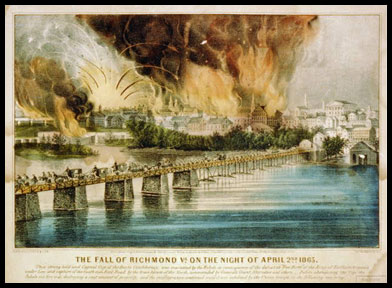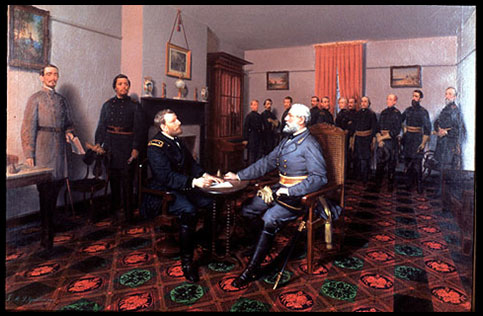

Lee managed to frustrate Grant for most of 1864, but by the fall Grant had finally begun to make progress and was gradually wearing down the Confederate Army.
On April 2, 1865, Lee informedInteractive popup. Assistance may be required. that he could no longer defend Richmond, and the Confederate government fled the city leading to a combination of riots and mourning among the white population. Two days later, Lincoln made the short trip to Richmond. The now-emancipated slave population of the city came out in crowds hailing him as "Father Abraham," alluding to the figure from the Bible.

Shortly after Richmond fell, Lee found himself surrounded with no means of escape. On Palm Sunday, he signaled to Grant that he was ready to lay down his arms. The Civil War, the bloodiest conflict in U.S. history, ended with a formal surrender of the Confederates. The meeting was carried out by Lee and Grant at the Appomattox Court House, Virginia.
Grant was extremely generous to the Southern soldiers, letting each man keep his own horse and providing 25,000 rations to a starving army.
→ Reflection: Select Lee, Lincoln, or Grant. Write a brief, one paragraph reflection that explains what he was thinking and feeling in the first ten days of April 1865.
One Final Coincidence
Lee formally agreed to the surrender at the home of Wilmer McLean. McLean had lived near Manassas, Virginia, the site of the first battle of the Civil War. Shots reached his front porch. McLean moved to Appomattox Court House to escape the war only to have it reach his home again upon its conclusion.
Sources of images used for this section as they appear, top to bottom: